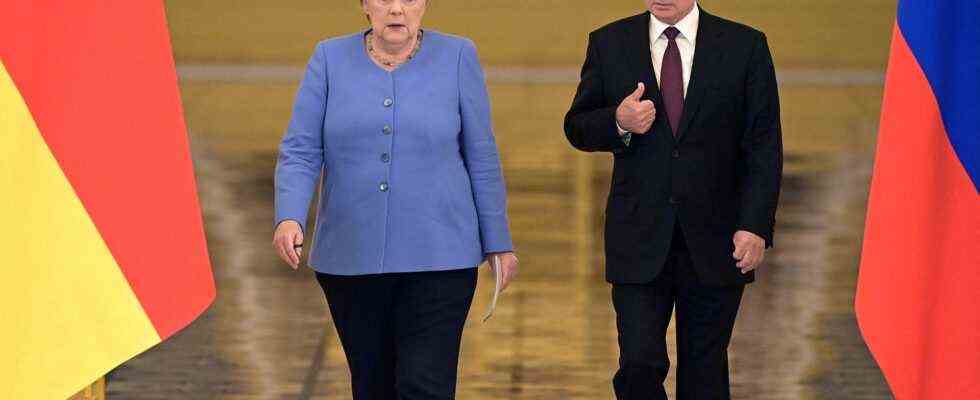Status: 08/20/2021 6:08 p.m.
Chancellor Merkel has asked the Russian President Putin to work with the Taliban to allow Afghan local workers to leave the country. At the meeting in Moscow, she again demanded the release of Navalny.
On her last official visit to Moscow, Chancellor Angela Merkel asked Russia for help in rescuing Afghan local workers. For the federal government, priority at the moment is to bring as many people as possible to Germany who have helped in 20 years of NATO work, said Merkel after the meeting with Russian President Putin. She asked them to point out in talks with the Taliban that cooperation on humanitarian issues would be better if these people could leave the country.
Ina Ruck, ARD Moscow: “That was a very sobering farewell visit for Angela Merkel”
daily news 6 p.m., 20.8.2021
Merkel said she made it clear that it was a “very frustrating moment” that the Taliban returned to power. “But it is also part of the realistic assessment that it is so.” Now you have to try to talk to them.
The Chancellor confirmed that the West had succeeded in averting the acute threat of terrorism emanating from Afghanistan. “But she is not permanently banned.” All further goals had not been achieved.
Warning of a claim to power beyond Afghanistan
Putin, for his part, accused the West of having an “irresponsible” policy on Afghanistan. This was aimed at imposing “foreign values” on the country from outside, he said. Attempts to “build democracy in other countries according to foreign models” must be stopped without taking into account historical peculiarities and traditions.
After the Taliban came to power, the Kremlin chief warned of a “collapse” in Afghanistan. He advocated building and strengthening democracy in the country and called for an internationally coordinated approach. He hoped that the international community would stick together. He warned the Taliban against expanding their power beyond Afghanistan. “The Taliban are not allowed to cross the country’s borders,” he said. That is of “central importance”.
Nawalny’s release demanded
Merkel also stated at the press conference that she had again demanded the release of Kremlin critic Alexei Navalny. “From our perspective, a colony conviction based on a previous judgment that the European Court of Human Rights has classified as manifestly disproportionate,” she said. She said to Putin “once again demanded the release of Alexei Navalny and also made it clear that we will stick to the matter here”.
Putin countered that Navalny was in jail for a “crime” and not for his political activities. “I would like to emphasize that he was not convicted for his political actions, but that he violated certain rules,” said the president. These would also apply to international partners, among other things. As for the Russian courts and their decisions – “please respect them,” said the Kremlin chief.
Navalny fell into a coma exactly a year ago, on August 20, 2020, on a flight from the Siberian city of Tomsk to Moscow. He was then flown to the Charité University Hospital in Berlin for treatment and later arrested on his return to Russia. Navalny blames Putin personally for the attack on him. The opposition member has been in custody for months.
Talks also about the conflict in Ukraine
On the subject of Ukraine, Putin called on Merkel to work towards a peaceful solution to the conflict in the east of the country during her visit to Kiev on Sunday. There is no alternative to the Minsk peace plan, he said. Merkel complained that there were still more deaths in the conflict. She advocated sticking to the Minsk conversation format and “not allowing it to end in a dead end”. One should “handle this format carefully, as long as we have nothing else. But the progress is not as I would like it to be,” she said.
She talked to Putin about the possibility of further high-level meetings being arranged if an agenda was reached. She will also advocate such an agenda for her upcoming visit to Ukraine. “Every little step forward could be important. But the board we have to drill is very, very thick,” said the Chancellor. “And there are all kinds of disappointments.”

